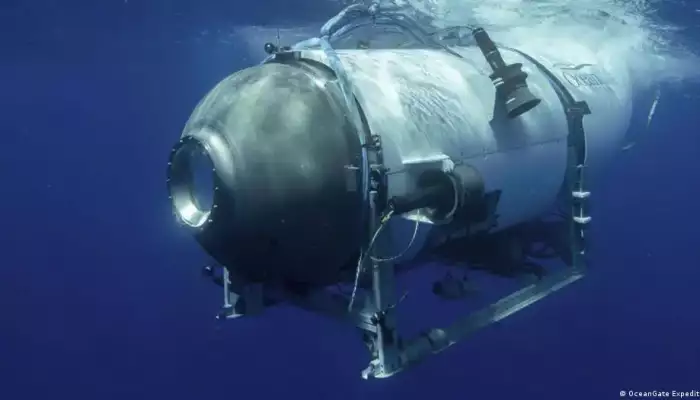
Newfoundland: The Canadian Transportation Safety Board said late on Friday it has launched an investigation into the loss of the Titan submersible during a deep-sea voyage to the Titanic shipwreck.
The body said it would "conduct a safety investigation regarding the circumstances of this operation" because the ship that the submersible was launched from — the Polar Prince — was a Canadian-flagged vessel.
The Transportation Safety Board has already dispatched investigators to the port of St. John's on Newfoundland "to gather information, conduct interviews, and assess the occurrence."
"In the coming days, we will coordinate our activities with other agencies involved," it added in a statement
The Transportation Safety Board is an independent agency that routinely probes air, rail, maritime and pipeline accidents. However, it does not assign fault or determine civil or criminal liability.
US Coast Guard declares 'major marine casualty'
The United States will also probe the loss of the Titan, authorities said on Friday, after finding debris that indicated a "catastrophic implosion of the vessel."
The US National Transportation Safety Board said it would join an investigation led by the US Coast Guard, which declared the loss a "major marine casualty."
The various investigations highlight the complex and at times unclear jurisdiction over the incident, which happened in international waters.
The company that owned and operated the Titan, OceanGate Expeditions, is based in the US.
According to a waiver seen by the Associated Press, the submersible itself was registered in the Bahamas.
Those killed in the tragedy were from the UK, Pakistan, France and the US.
Meanwhile, the Canadian-flagged mothership was majority owned by the Miawpukek First Nation.
Scientist and journalist Michael Guillen, who made his own journey to the Titanic shipwreck aboard a Russian research submersible in 2000, said all such deep sea tourism voyages should be halted until an investigation is complete.
"The Titan was designed so that the ballast would automatically jettison after 24 hours whether the mission was successful or not," Guillen told DW's Nicole Frölich.
"Plus, there were two backups to that — one electronic and one manual using compressed air. So when I learned that this vessel hadn't popped to the surface within 24 hours, I knew that this wasn't just a communications failure, this was a failure that involved the entire vessel."
Guillen said the Titan's descent needs to be mapped and debris must be recovered, if possible, in order to determine where the weak spot on the vessel was.
"And once we know that information, then we cannot jump to conclusions, but then we can make intelligent conclusions, well-reasoned conclusions, and then try to fix it so that in the future, if we allow this tourism to continue, we can ensure the safety of its passengers," he said.